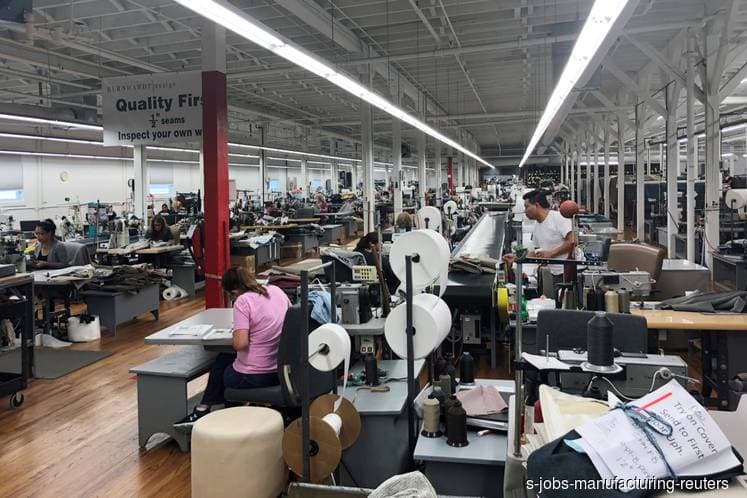
This article first appeared in The Edge Financial Daily on October 2, 2019
KUALA LUMPUR: Business conditions in the manufacturing sector remain challenging despite September’s reading of IHS Markit Malaysia Manufacturing Purchasing Managers’ Index (PMI) rising to a four-month high of 47.9, up from 47.4 in August.
The improvement in the PMI was attributed to increases in new orders and output indices. This was the first time since April that the headline index increased, according to the IHS Markit which compiles the index.
However, Malaysia’s PMI has not breached the confidence level of 50, separating growth from contraction, since September last year.
IHS Markit chief business economist Chris Williamson said with global headwinds intensifying, it is no surprise to see Malaysia’s manufacturers continuing to struggle in September. Nevertheless, he noted that there were some encouraging signs of upward momentum being regained.
He added that the September survey came on the heels of global PMI data showing worldwide economic growth slipping closer to three-year’s lows mid-way through the third quarter, led by the steepest drop in global trade since 2012.
“Geopolitical concerns and trade wars are dampening business activity around the world, with key markets such as the US and eurozone showing increased signs of stress.
“In this environment, it’s reassuring to see that the Malaysia PMI is indicating only a very marginal easing of growth so far in the third quarter, thanks to the PMI reviving to a four-month high in September, hinting that gross domestic product is likely to continue to expand at a respectable annual rate of 4%-5% in the third quarter.
“However, while businesses generally remain upbeat about expanding production over the coming year, September saw some loss of optimism. It will therefore be important to watch global developments to ascertain whether growth momentum can be sustained as we head into the fourth quarter,” said Williamson in a press release.
Meanwhile, IHS Markit said that the Asean manufacturing sector continued to struggle in September, with the latest data signalling a downturn for the fourth successive month.
The headline IHS Markit Asean Manufacturing PMI rose to 49.1 in September from 48.9 in August.
IHS Markit said although the contraction eased from August, the latest headline PMI figure was the second-lowest since November 2015, mainly due to the sector facing the fastest decline in production since July 2017, and a back-to-back reduction in new orders.
“Companies signalled a back-to-back fall in new business, with output also decreasing. Consequently, employment contracted at the sharpest rate for nearly four years, and expectations towards future output became less optimistic.
“Although, the overall deterioration in the health of the sector was only marginal, the PMI fell to its second-lowest level since November 2015. Subdued demand appears to be a key factor weighing on growth, while inflationary pressures were muted in the context of historical data,” Cooper said.
He added that: “Data broken down by country showed that the sharpest deterioration was seen in Singapore, alongside downturns in Indonesia and Malaysia.”
Operating conditions in Indonesia continued to deteriorate, posting its second-lowest headline PMI figure (49.1) since July 2017 in September.
Meanwhile, Singapore reported a sharp downturn in the health of its manufacturing sector in September. The headline reading (43.1) was among the lowest in the series history (since August 2012), according to IHS Markit.